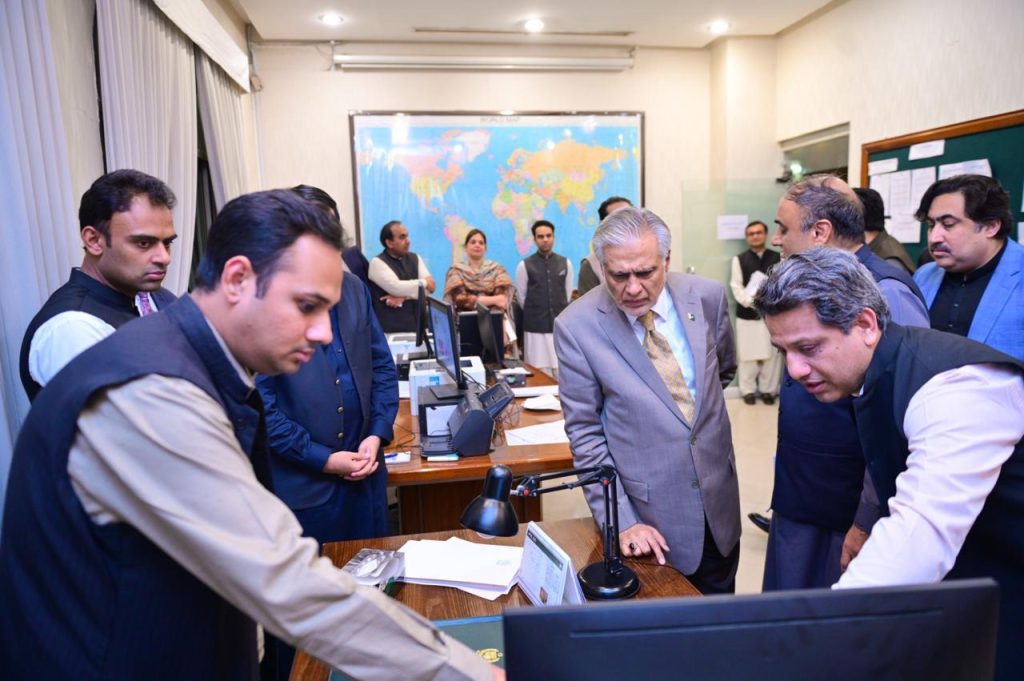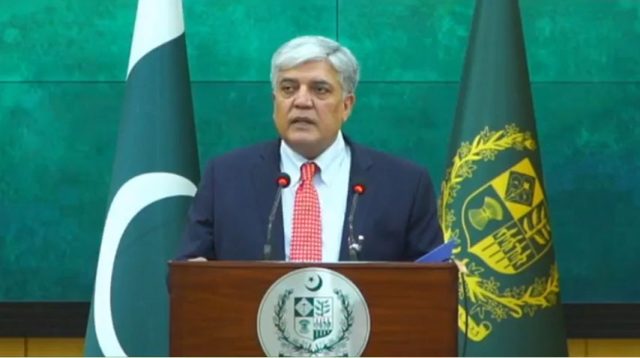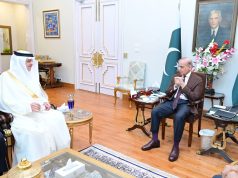ISLAMABAD, Friday, April 25, 2025 (WNP): Pakistan on Friday issued a strong warning that it would take all necessary measures to defend its territorial integrity and uphold its rights under the Indus Waters Treaty, amid rising tensions with India.
“The Indus Waters Treaty is unambiguous. It is our lifeline and our right—enshrined in international law, customary law, and bilateral treaties. All options are on the table. Pakistan will do everything necessary to safeguard this right,” Foreign Office spokesperson Shafqat Ali Khan said during his weekly media briefing.

He stressed that Pakistan remained in contact with friendly countries to apprise them of the evolving situation, though no formal mediation was underway.
Khan reiterated the decisions taken by the National Security Committee (NSC) on Thursday in response to Indian provocations, including the closure of the Wagah Border, suspension of trade and airspace access, downgrade in diplomatic relations, and suspension of visa issuance—excluding Sikh pilgrims.
He emphasized that India had no legal or moral standing to unilaterally suspend or alter the Indus Waters Treaty. “Pakistan is a responsible country, committed to fulfilling its international obligations. But it takes two to tango,” Khan said, warning that any Indian attempt to disrupt the treaty would be considered “an act of war.”
On the issue of Pakistani prisoners in India, the spokesperson expressed hope that New Delhi would respect international and humanitarian law and ensure their safety and fair treatment. “The relationship between the two countries is built on legal foundations. If India continues to erode those foundations, Pakistan reserves the right to take all necessary measures,” he stated.
Responding to a question about anti-Pakistan propaganda in Indian media, Khan termed it “deeply regrettable,” accusing Indian outlets of spreading baseless allegations without evidence to justify the government’s aggressive posture.
Turning to Pakistan’s diplomatic engagements, Khan briefed the media on several high-level visits and bilateral discussions:
Prime Minister Shehbaz Sharif’s visit to Turkiye, during which he held “extensive discussions” with President Recep Tayyip Erdoğan on bilateral cooperation and regional issues.
UAE Foreign Minister Sheikh Abdullah bin Zayed Al Nahyan’s visit to Pakistan (April 20–21), which led to the signing of MoUs on cultural exchange, consular affairs, and the launch of a UAE-Pakistan Joint Business Council.
Rwandan Foreign Minister Olivier Nduhungirehe’s visit, which culminated in the signing of an MoU on diplomatic training.
Khan also shared condolences on the death of Pope Francis, calling him a “revered spiritual figure and global advocate for peace, interfaith harmony, and human dignity.” He said Pakistan stood in solidarity with Catholic communities worldwide in mourning the Pope’s passing.
Meanwhile, Deputy Prime Minister and Foreign Minister Senator Ishaq Dar visited the Operations Room at the Ministry of Foreign Affairs, established to monitor ongoing developments in Pakistan-India relations. He appreciated the readiness and vigilance of the diplomatic staff.
As regional tensions escalate, Pakistan reiterated its commitment to peace but warned that any unilateral aggression—particularly concerning vital resources like water—would meet with a resolute response.




